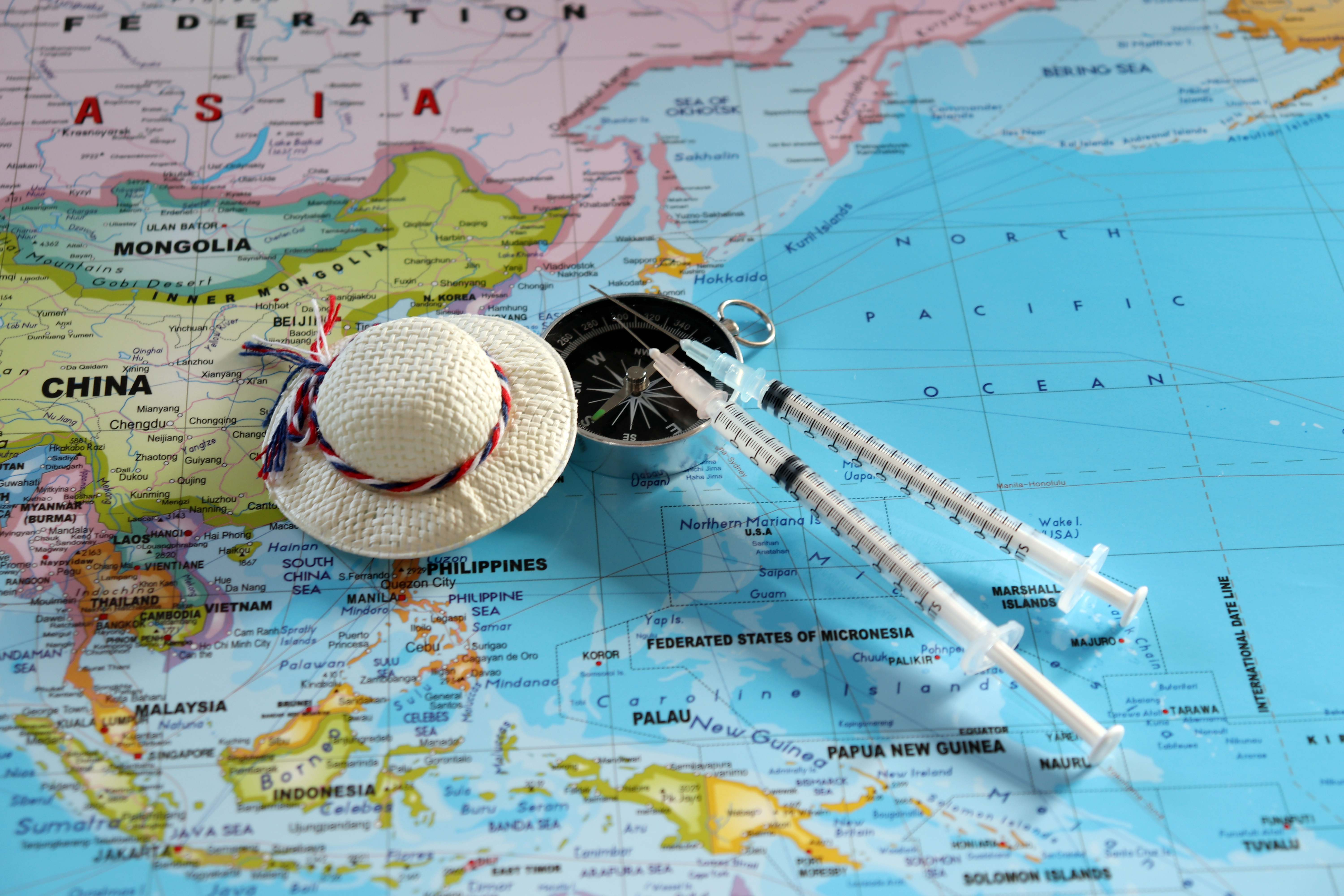What are Recommended Vaccinations for Travelers in Most Visited Countries?
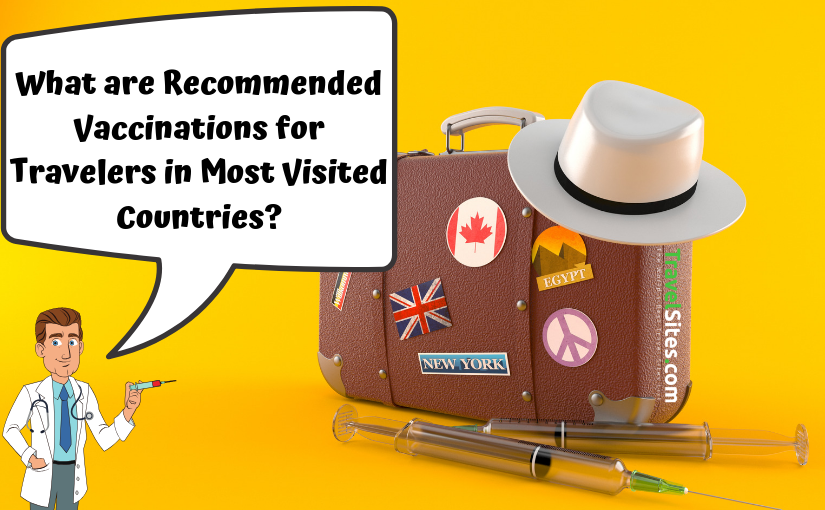
You’ve got your passport, your travel documents, and everything you thought you would need to travel to your next dream destination. But as you’re planning your trip, you come face to face with a roadblock you didn’t immediately think of. They’re asking for an updated record of your vaccination.
The issue of vaccinations for travel is something that many of us don’t anticipate. But their importance for your safety – and for the safety of the global population – is nothing short of utmost. Here’s everything you need to know about vaccinations and the countries that require them for travel so you can come prepared when you start your travel plans.
Why Do You Need Vaccinations for Travel?

First things first – why do you even need to get vaccines for travel in the first place? Well, it might sound a little dramatic to say that vaccinations are essential for worldwide health, but they are. Getting a vaccination doesn’t only protect you, but the population of the locality you’re visiting and your own community.
How exactly does that happen? Here are some reasons why vaccinations are cool (and necessary for travel.)
They Prevent You from Bringing Home a Disease
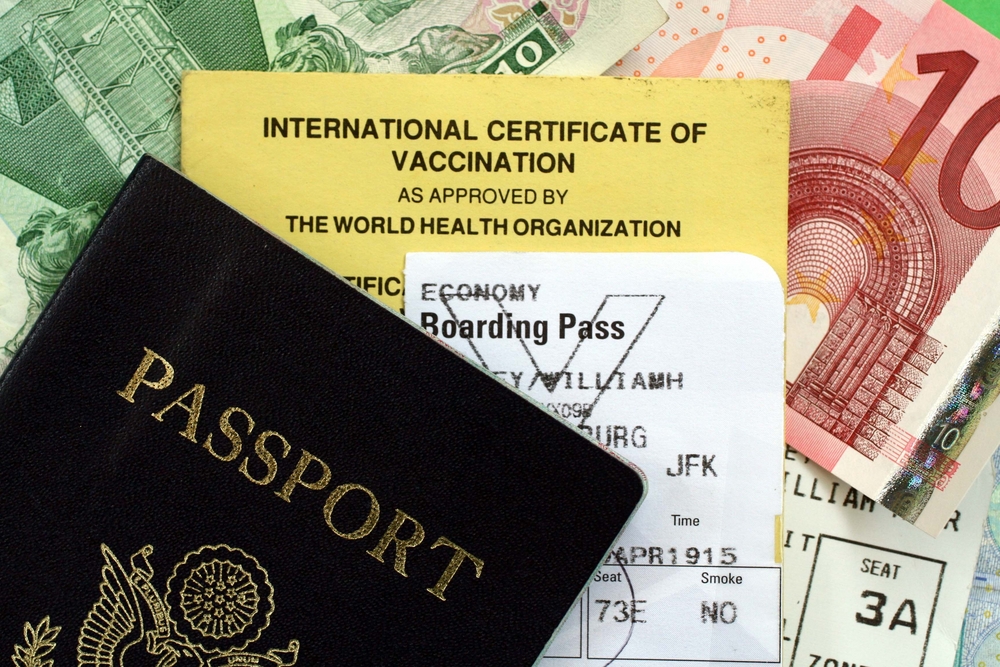
Maybe there are certain diseases or infections that aren’t really common where you’re from. For instance, measles isn’t really a problem in the United States. In 2019, the CDC reported just 971 cases.
Sure, it might be the latest high since 1994, but just 971 cases in a population of millions illustrates that the condition is relatively under control. Thus, your risk of getting infected on your own local soil is unlikely – even if you don’t have a vaccination.
Unfortunately, not all countries are as lucky. For example, Ukraine has caused an outbreak of measles in the past few months. This has driven cases to rise 300%, so anyone unvaccinated for measles traveling through Ukraine – and the rest of Europe – might just bring it home.
So, what’s the issue there? Aside from suffering from a nasty case of measles yourself, it’s worth mentioning that not everyone back home is vaccinated to combat measles. If that were true, why are there only 971 cases of measles currently reported in the US?
Unvaccinated individuals rely on herd immunity to save their skin from these conditions. Because the majority is vaccinated, they’re not likely to contract the infection. And because not a lot of people have it, then even unvaccinated individuals won’t get it.
Bringing home a condition like measles means that you might just introduce an outbreak. So, to protect your local community, your local government together with the World Health Organization (WHO) might just recommend or require that you receive the vaccination for measles.
They Protect Your Destination’s Population
There are certain populations that are especially prone to certain infections and diseases. For example, Turkey is particularly wary of polio. While the country has the disease under control, it’s surrounded by other countries that are polio active. So, to prevent an outbreak, the Turkish government as well as WHO recommends that travelers show proof of polio vaccination to keep the population safe.
Being able to prove that you don’t pose a health threat to the country you’re visiting makes you a better candidate to receive a go signal. After all, no one wants to welcome disease to an entire population just because one tourist didn’t want to get a shot.
Kinds of Vaccinations for Travel

The Centers for Disease Control and Prevention (CDC) categorizes three types of vaccinations that might be necessary for travel. Knowing the different categories should help you understand which shots you might have to get before you jet set for your latest adventure.
1.Routine Vaccines – These are vaccinations that you might think are associated with babies and children. However, there are some booster shots for these vaccines that you actually need to get well into your adulthood, like the flu shot which is an annual requirement. Routine vaccines are typically the same from country to country and help protect the global population from diseases that were once considered fatal but have successfully been controlled by way of vaccinations.
2. Required Vaccines – These are vaccines that are required by the government of the country you’re visiting. It could be to protect the population from that specific disease or to prevent you from contracting it and bringing it back to your own locality. More often than not, only the yellow fever vaccine will be required by certain countries.
3. Recommended Vaccines – The World Health Organization (WHO) avail of a specific vaccine before heading to your destination. These vaccines might not be required by your intended country of travel, but they might help protect you against diseases that occur there. For example, your government might recommend a typhoid vaccine if you’re traveling to a country where contaminated food and water have been known to cause the condition.
Commonly Recommended Vaccines for Travel
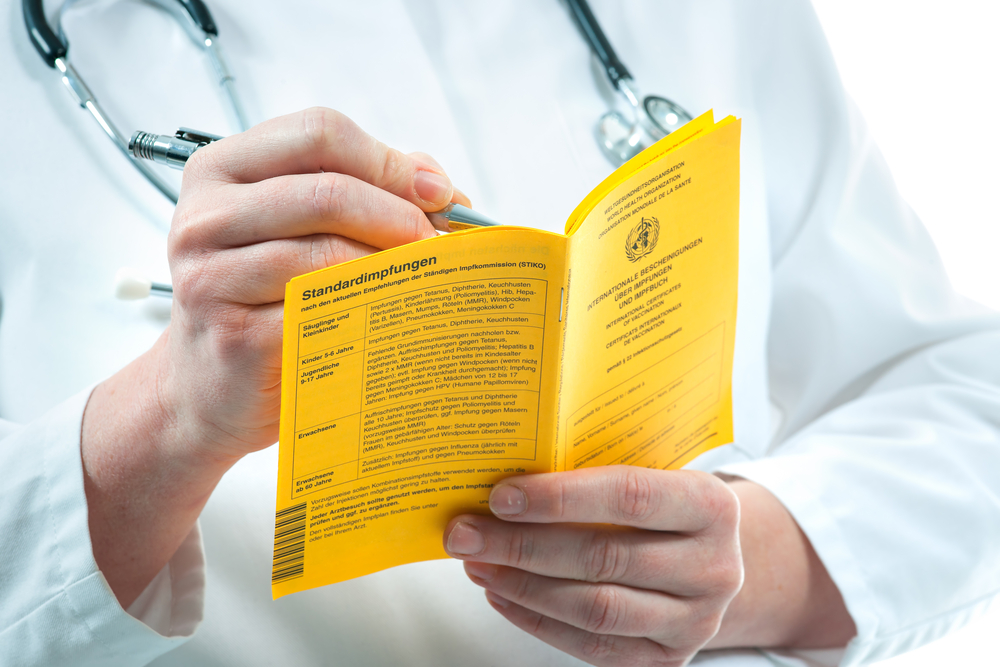
WHO in conjunction with the local health authority in your destination will typically recommend the same vaccines before you travel? Check this list of shots to see whether you’re prepped for your trip or if you’ve got to make one last pit stop at your doc’s clinic.
- Hepatitis A – Transmitted through contaminated food and water, the Hep A vaccine is a recommended shot for most travelers. If you’re planning to sample some local street food, make sure you’re equipped with a Hep A vaccine.
- Hepatitis B – Individuals infected with Hepatitis B can transfer the virus through blood and other bodily fluids. Coming into contact with an infected person can put you at risk, making the Hep B vaccine a recommended shot.
- Rabies – Planning to visit a zoo or farm? Make sure you’re prepared. The rabies vaccine can protect you from the saliva of infected animals, which is how the virus is usually transmitted.
- Typhoid – Individuals are infected with typhoid fever by contaminated food and water. Getting a vaccine can help reduce the risk of contracting the infection when sampling food choices – especially on the street – from your trip.
- Japanese encephalitis – Transmitted through mosquitoes, this vaccine is recommended for individuals who plan to visit rural areas where mosquitoes might thrive, especially during certain times of the year.
- Yellow fever – Also transmitted through mosquitoes, this vaccine will typically be recommended if you’re traveling to or from a country with risk of yellow fever transmission.
- Cholera – Transmitted through contaminated food and water, cholera can cause severe diarrhea and vomiting, and may even be fatal. Get a shot if recommended so you can steer clear of potentially life-threatening outcomes.
- Anthrax – Contracted from animals and certain biological agents, anthrax is a bacterial disease affecting the skin and lungs. An infection could lead to severe skin ulceration and a form of pneumonia. It’s recommended that individuals who might be exposed to animals or other biological agents receive a vaccination for anthrax to be on the safe side.
- Polio – The polio vaccine usually falls within the routine list of vaccinations, but there are some countries that might require or recommend it. Certain nations that are prone to outbreaks will seek proof of vaccination to prevent a potential threat to their local population.
Popular Travel Destinations and Their Vaccination Requirements
France

France sees some 80 million international arrivals each year, making it one of the most popular tourist destinations of our current time. That said, WHO does recommend a few vaccinations for travelers before they pay the popular tourist hotspot a visit.
Recommended Vaccinations:
- Hepatitis A
- Hepatitis B
- Rabies
Routine Vaccinations:
- Measles, mumps, and rubella
- Diphtheria, pertussis, and tetanus
- Chickenpox
- Shingles
- Pneumonia
- Influenza
- Meningitis
- Polio
Spain

Another popular destination, Spain welcomes a whopping 75 million international arrivals each year. With such high traffic coming in from all over the globe, it goes without saying that getting a few shots before you fly can help keep you relatively safe.
Recommended Vaccinations:
- Hepatitis A
- Hepatitis B
- Rabies
Routine Vaccinations:
- Measles, mumps, and rubella
- Diphtheria, pertussis, and tetanus
- Chickenpox
- Shingles
- Pneumonia
- Influenza
- Meningitis
- Polio
China

Surprisingly enough, China has seen quite a lot of tourist traffic in the past few years. With 60 million international arrivals yearly, China is heavily regulated by WHO to guarantee the health and safety of the global population.
Recommended Vaccinations:
- Hepatitis A
- Hepatitis B
- Typhoid
- Rabies
- Yellow fever
- Japanese encephalitis
Routine Vaccinations:
- Measles, mumps, and rubella
- Diphtheria, pertussis, and tetanus
- Chickenpox
- Shingles
- Pneumonia
- Influenza
- Meningitis
- Polio
Italy

With over 58 million visitors each year, Italy is relatively safe when it comes to diseases. Despite that, WHO and the local government of Italy does recommend that travelers come ready with a few vaccines to prevent certain conditions.
Recommended Vaccinations:
- Hepatitis A
- Hepatitis B
- Rabies
Routine Vaccinations:
- Measles, mumps, and rubella
- Diphtheria, pertussis, and tetanus
- Chickenpox
- Shingles
- Pneumonia
- Influenza
- Meningitis
- Polio
Mexico
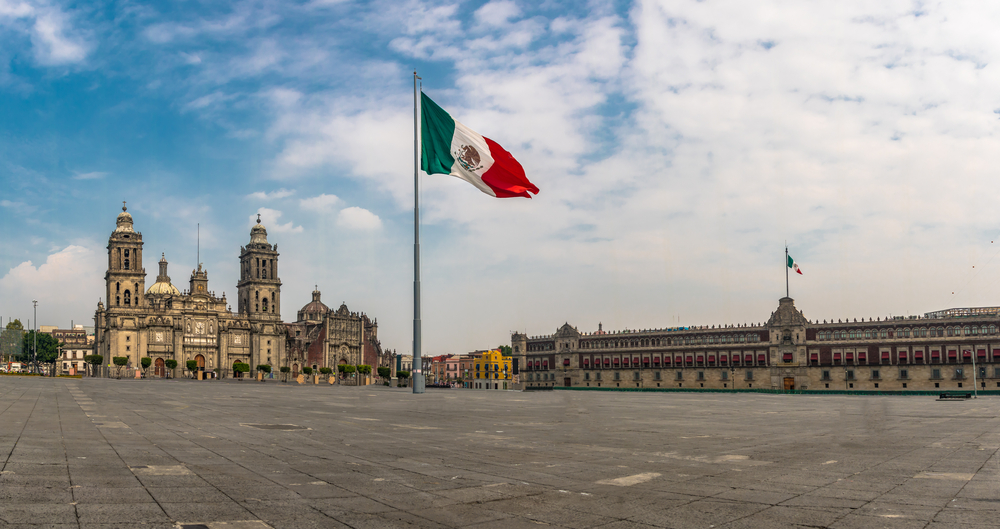
Planning a trip to Mexico? Hold your horses. There are a few recommended vaccines that could help save your life (and someone else’s) while you travel through this popular hotspot. With close to 40 million visitors each year, Mexico can be a dream destination but only if you’ve come prepared.
Recommended Vaccinations:
- Hepatitis A
- Hepatitis B
- Typhoid
- Cholera
- Rabies
Routine Vaccinations:
- Measles, mumps, and rubella
- Diphtheria, pertussis, and tetanus
- Chickenpox
- Shingles
- Pneumonia
- Influenza
- Meningitis
- Polio
United Kingdom

As the 7th most visited destination with 37 million international arrivals each year, the United Kingdom hasn’t seen any major health threats to its population in recent years thanks to its polished health care program. Even then, WHO recommends that travelers update their shots to guarantee their health and wellness.
Recommended Vaccinations:
- Hepatitis A
- Hepatitis B
- Rabies
Routine Vaccinations:
- Measles, mumps, and rubella
- Diphtheria, pertussis, and tetanus
- Chickenpox
- Shingles
- Pneumonia
- Influenza
- Meningitis
- Polio
Turkey
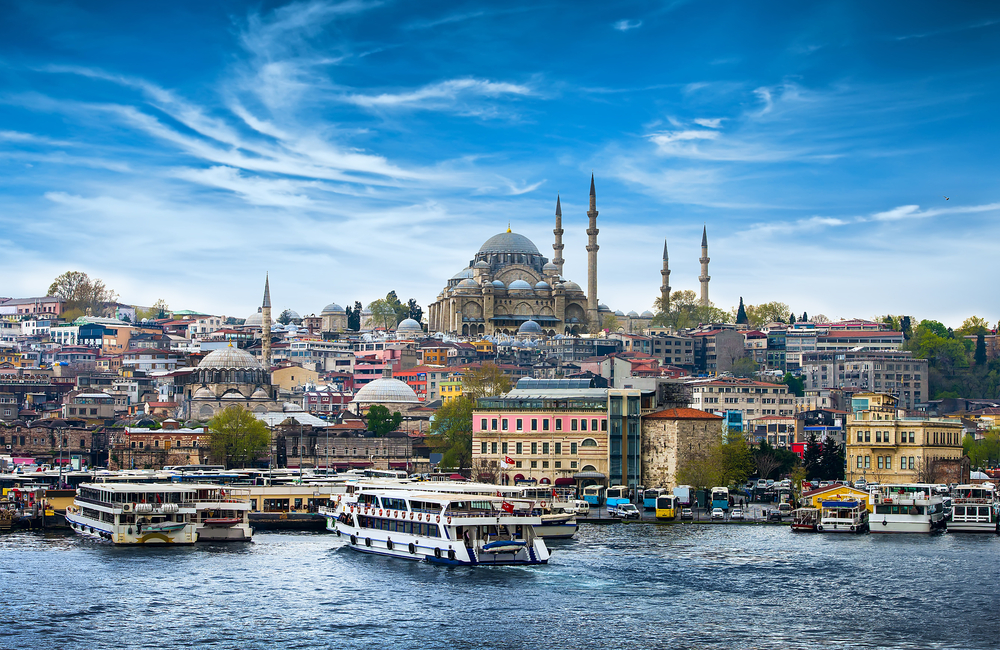
A whopping 37.6 million international visitors makes Turkey one of the most popular travel destinations across the globe. So, just like every other tourist hotspot on this list, WHO does recommend a few vaccinations to keep you on the safe side.
Recommended Vaccinations:
- Hepatitis A
- Hepatitis B
- Typhoid
- Rabies
- Anthrax (may be required for certain US citizens)
- Polio
Routine Vaccinations:
- Measles, mumps, and rubella
- Diphtheria, pertussis, and tetanus
- Chickenpox
- Shingles
- Pneumonia
- Influenza
- Meningitis
Germany

With their polished healthcare system, Germany makes it easy, affordable, and accessible for people to gain access to vaccinations and other medical services. So, despite welcoming 37.5 million international visitors each year, the country maintains a relatively safe health climate for its locals and tourists. Of course, that doesn’t mean there aren’t any recommended vaccinations for travelers planning a trip through this busy European nation.
Recommended Vaccinations:
- Hepatitis A
- Hepatitis B
- Rabies
Routine Vaccinations:
- Measles, mumps, and rubella
- Diphtheria, pertussis, and tetanus
- Chickenpox
- Shingles
- Pneumonia
- Influenza
- Meningitis
- Polio
Thailand

Budget travel is pretty big these days, which is why Thailand has skyrocketed through the world’s highest tourism rankings based on international arrivals. Every year, the country gives a warm welcome to 35.4 million visitors each day. And as you would have guessed, that does call for a few vaccinations to help keep you, the locality, and your community back home safe from infection.
Recommended Vaccinations:
- Hepatitis A
- Hepatitis B
- Typhoid
- Cholera
- Yellow fever
- Japanese encephalitis
- Rabies
Routine Vaccinations:
- Measles, mumps, and rubella
- Diphtheria, pertussis, and tetanus
- Chickenpox
- Shingles
- Pneumonia
- Influenza
- Meningitis
- Polio
Conditions Without Vaccinations
There are certain conditions that – although are rampant in certain countries – do not have existing vaccinations. So, as a traveler, it pays to research where you’re going to learn about the health risks so you can come prepared to face them.
For example, in the tropics, mosquito-transmitted diseases like Dengue Fever and the Zika Virus can be pretty common. But because we’ve yet to develop the vaccinations to prevent them, the best way to avoid them would be to pack some bug repellent and to wear appropriate clothing for outdoor activities.
Similarly, there isn’t a vaccine for conditions like HIV just yet. So, practicing proper hygiene and safe relations with potential partners can limit the risk for this rapidly spreading disease.
Final Thoughts
It’s all fun and games until someone runs a high fever. Travel can be loads of exciting, well-meaning fun, but without the right preparation, you might just put your health at risk. Make sure you keep your (and the rest of the world’s) wellness in mind before you head out for that trip and please, get vaccinated whenever necessary.
Let’s be responsible travelers. Visit your doctor, stay updated on your shots, and practice the proper techniques for safety, sanitation, and personal hygiene while you travel through your chosen tourist destination, because the life you save might just be your own.
